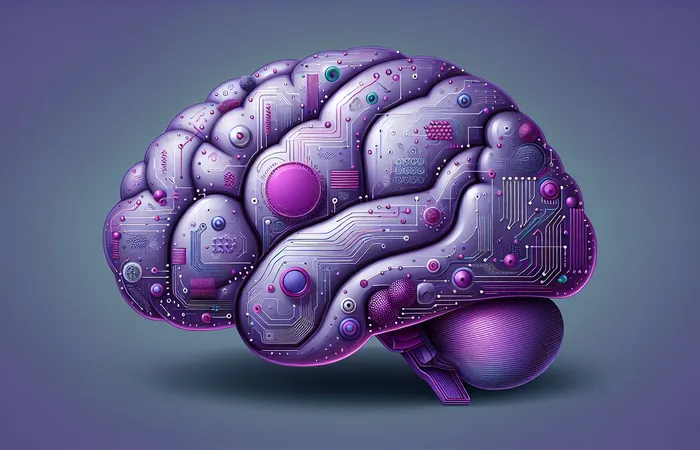Fostering a Learning Culture in Modern Corporations

In today's rapidly evolving business landscape, fostering a learning culture within organizations has become a pivotal driver of innovation and growth. Companies embracing this mindset are proving more adaptable and resilient.
The Importance of a Learning Culture
Creating an environment where continuous learning is not only encouraged but ingrained in the corporate fabric can be transformative. In a world driven by technological advancements, a robust learning culture ensures that employees are equipped with the latest skills and knowledge, making them more capable of navigating complex challenges. Organizations that prioritize learning become agile, fostering an ecosystem where employees are motivated to develop, innovate, and take initiative. This adaptive quality can maintain competitive advantage, making the business more resilient in times of change.
Key Components of a Learning Culture
At the heart of a learning culture is the commitment to employee development. This is more than just offering training programs—it's about nurturing a mindset that values knowledge and seeks out opportunities for growth and development. Here are some key components:
- Leadership Commitment: Leaders should actively champion learning initiatives by sharing their learning experiences and encouraging others. When leaders model a commitment to learning, it sets a precedent for the entire organization.
- Accessibility of Learning Resources: Ensuring that learning resources are readily available is crucial. Whether through online courses, workshops, or subscriptions to educational platforms, providing diverse learning avenues can cater to different learning styles and needs. Platforms like Skill5 Academy offer micro-courses that provide tailored learning experiences, fitting into an employee’s unique professional journey.
- Integration of AI in Learning: Leveraging AI technology can personalize learning experiences, thus maximizing efficiency and engagement. Incorporating AI solutions, such as those offered by Skill5, can aid in delivering customized training modules based on individual and team needs, streamlining the learning process.
- Recognizing Learning Achievements: Public acknowledgment and rewards for learning achievements cultivate enthusiasm and appreciation for continued learning. Recognizing employee efforts often motivates others to pursue their own development paths.
Challenges and Solutions in Implementing a Learning Culture
While the benefits are clear, implementing a learning culture is not without its challenges. Common hurdles include resistance to change, limited resources, and balancing learning with daily responsibilities. Here are strategies to overcome these challenges:
- Addressing Resistance to Change: Foster an open dialogue about the benefits of learning and how it can improve both personal and organizational growth. Encouraging testimonials or case studies from peers already benefiting can reduce apprehension.
- Optimizing Resource Allocation: Allocate resources wisely by investing in versatile learning platforms. Utilizing tools that offer a wide variety of content formats can maximize return on investment.
- Balancing Learning with Work: Integrating learning within the daily work routine can be effective. Micro-learning modules, which can be consumed over short periods, are particularly useful in this effort.
The Role of Technology in Learning
Technology plays a pivotal role in reinforcing a learning culture. Today’s digital world enables access to vast pools of information and resources with a click. Integrating digital learning solutions can make learning more engaging and effective.
AI-powered platforms, such as Skill5, are leading the way by transforming how training content is developed, curated, and delivered. By automating routine tasks and customizing learning experiences, AI allows employees to focus on acquiring and applying new skills, elevating their roles within the organization.
Sustaining a Learning Culture
The journey to a sustainable learning culture is ongoing. It's essential to continually revisit and refine the strategies in place to ensure they meet evolving business needs and learner expectations. Organizations should:
- Foster Communities of Practice: Encouraging employees to join communities where they can share knowledge and collaborate on solutions can help sustain learning momentum and innovation.
- Evaluate and Iterate: Regular assessments of training programs and their outcomes are necessary to adjust strategies and resources effectively. Gathering feedback ensures that learning remains relevant and impactful.
- Emphasize Lifelong Learning: Encourage a philosophy of lifelong learning by integrating personal development goals into performance evaluations and career development plans.
In conclusion, establishing and nurturing a robust learning culture in modern corporations is not just about creating a competitive edge—it's a necessity for ongoing success. By focusing on strategic initiatives for learning and personal development, organizations create an empowered workforce ready to embrace the future. As we embark on this transformative journey, platforms like Skill5 provide critical support, helping organizations harness the potential of AI in education, and ensuring that all employees have access to the knowledge and skills they require for success.



